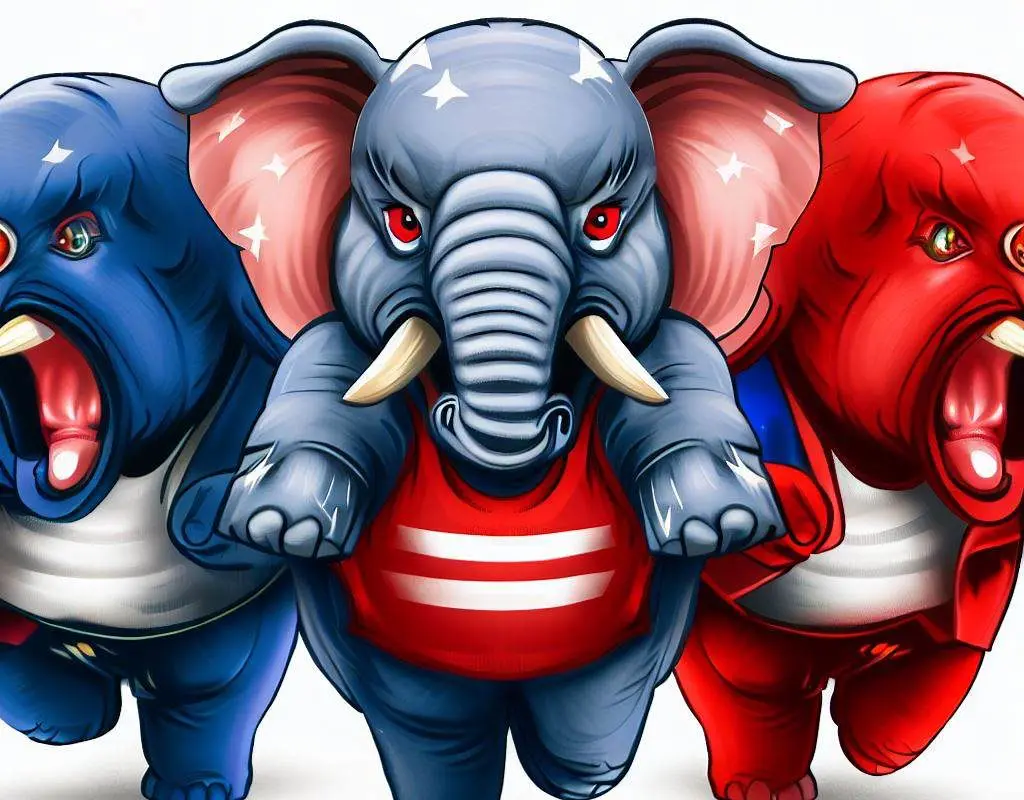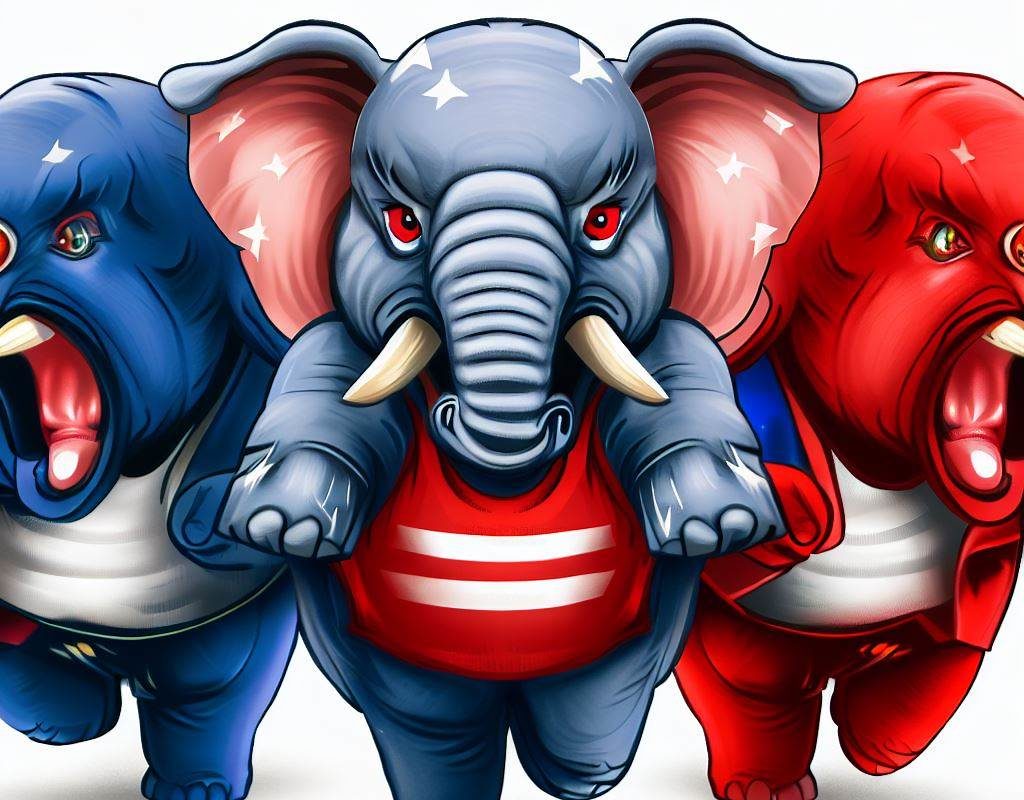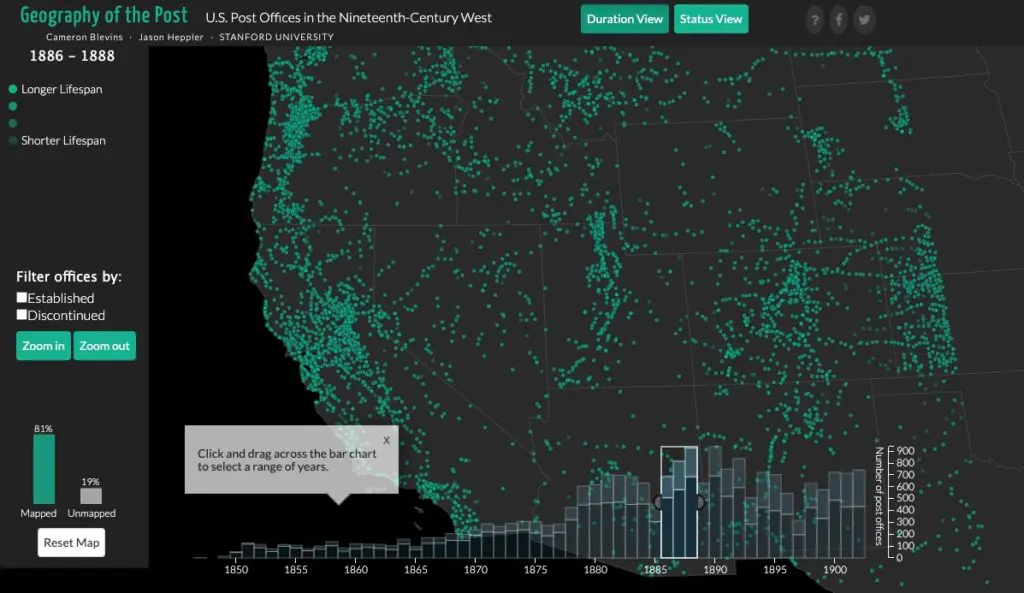The Richest People in the World
The vast majority of billionaires in the world got richer during the year of the pandemic — fantastically richer. And they still demand more!
Inequality grows and grows, warping both capitalism and government, and yet still the plutocrats press their advantage further while whining about their invented delusional oppression.
Certainly not all rich people are gigantic assholes, but a depressing many of them are. We can hang onto the good ones while tossing the others out of the Titanic lifeboats where their rugged masculinity can carry them to shore.
see also:
- Koup Klux Klan: Who is trying to take over America?
- Oligarchy and the creep of fascism
- Property vs. People
- Inequality
- Neoliberalism
- Global financial crisis of 2007-8
- Surveillance capitalism
- Political contributions by industry, 2019-2020
- Efficiency isn’t everything
- Palmer Luckey and Peter Thiel: Welfare queens
| Name | Net Worth | Wealth Source | Industry |
|---|---|---|---|
| Jeff Bezos | $177 B | Amazon | Technology |
| Elon Musk | $151 B | Tesla, SpaceX | Technology |
| Bernard Arnault & family | $150 B | LVMH | Fashion & Retail |
| Bill Gates | $124 B | Microsoft | Technology |
| Mark Zuckerberg | $97 B | Technology | |
| Warren Buffett | $96 B | Berkshire Hathaway | Finance & Investments |
| Larry Ellison | $93 B | software | Technology |
| Larry Page | $91.5 B | Technology | |
| Sergey Brin | $89 B | Technology | |
| Mukesh Ambani | $84.5 B | diversified | Diversified |
| Amancio Ortega | $77 B | Zara | Fashion & Retail |
| Francoise Bettencourt Meyers & family | $73.6 B | L'Oréal | Fashion & Retail |
| Zhong Shanshan | $68.9 B | beverages, pharmaceuticals | Food & Beverage |
| Steve Ballmer | $68.7 B | Microsoft | Technology |
| Ma Huateng | $65.8 B | internet media | Technology |
| Carlos Slim Helu & family | $62.8 B | telecom | Telecom |
| Alice Walton | $61.8 B | Walmart | Fashion & Retail |
| Jim Walton | $60.2 B | Walmart | Fashion & Retail |
| Rob Walton | $59.5 B | Walmart | Fashion & Retail |
| Michael Bloomberg | $59 B | Bloomberg LP | Media & Entertainment |
| Colin Zheng Huang | $55.3 B | e-commerce | Technology |
| MacKenzie Scott | $53 B | Amazon | Technology |
| Daniel Gilbert | $51.9 B | Quicken Loans | Finance & Investments |
| Gautam Adani & family | $50.5 B | infrastructure, commodities | Diversified |
| Phil Knight & family | $49.9 B | Nike | Fashion & Retail |
| Jack Ma | $48.4 B | e-commerce | Technology |
| Charles Koch | $46.4 B | Koch Industries | Oil & Gas |
| Julia Koch & family | $46.4 B | Koch Industries | Oil & Gas |
| Masayoshi Son | $45.4 B | internet, telecom | Technology |
| Michael Dell | $45.1 B | Dell computers | Technology |
| Tadashi Yanai & family | $44.1 B | fashion retail | Fashion & Retail |
| François Pinault & family | $42.3 B | luxury goods | Fashion & Retail |
| David Thomson & family | $41.8 B | media | Media & Entertainment |
| Beate Heister & Karl Albrecht Jr. | $39.2 B | supermarkets | Fashion & Retail |
| Wang Wei | $39 B | package delivery | Service |
| Miriam Adelson | $38.2 B | casinos | Gambling & Casinos |
| He Xiangjian | $37.7 B | home appliances | Manufacturing |
| Dieter Schwarz | $36.9 B | retail | Fashion & Retail |
| Zhang Yiming | $35.6 B | TikTok | Technology |
| Giovanni Ferrero | $35.1 B | Nutella, chocolates | Food & Beverage |
| Alain Wertheimer | $34.5 B | Chanel | Fashion & Retail |
| Gerard Wertheimer | $34.5 B | Chanel | Fashion & Retail |
| Li Ka-shing | $33.7 B | diversified | Diversified |
| Qin Yinglin & family | $33.5 B | pig breeding | Food & Beverage |
| William Lei Ding | $33 B | online games | Technology |
| Len Blavatnik | $32 B | music, chemicals | Diversified |
| Lee Shau Kee | $31.7 B | real estate | Real Estate |
| Jacqueline Mars | $31.3 B | candy, pet food | Food & Beverage |
| John Mars | $31.3 B | candy, pet food | Food & Beverage |
| Yang Huiyan & family | $29.6 B | real estate | Real Estate |
| Alexey Mordashov & family | $29.1 B | steel, investments | Metals & Mining |
| Robin Zeng | $28.4 B | batteries | Energy |
| Hui Ka Yan | $27.7 B | real estate | Real Estate |
| Susanne Klatten | $27.7 B | BMW, pharmaceuticals | Automotive |
| Vladimir Potanin | $27 B | metals | Metals & Mining |
| Dietrich Mateschitz | $26.9 B | Red Bull | Food & Beverage |
| Pang Kang | $26.4 B | soy sauce | Food & Beverage |
| Klaus-Michael Kuehne | $26.3 B | shipping | Logistics |
| Vladimir Lisin | $26.2 B | steel, transport | Metals & Mining |
| Wang Xing | $26.1 B | e-commerce | Technology |
| German Larrea Mota Velasco & family | $25.9 B | mining | Metals & Mining |
| Leonardo Del Vecchio & family | $25.8 B | eyeglasses | Fashion & Retail |
| Takemitsu Takizaki | $25.8 B | sensors | Manufacturing |
| Leonard Lauder | $25.5 B | Estee Lauder | Fashion & Retail |
| Thomas Peterffy | $25 B | discount brokerage | Finance & Investments |
| Vagit Alekperov | $24.9 B | oil | Energy |
| Leonid Mikhelson | $24.9 B | gas, chemicals | Energy |
| Jim Simons | $24.6 B | hedge funds | Finance & Investments |
| Jiang Rensheng & family | $24.4 B | vaccines | Healthcare |
| Gina Rinehart | $23.6 B | mining | Metals & Mining |
| Rupert Murdoch & family | $23.5 B | newspapers, TV network | Media & Entertainment |
| Shiv Nadar | $23.5 B | software services | Technology |
| Zhang Zhidong | $23.4 B | internet media | Technology |
| Iris Fontbona & family | $23.3 B | mining | Metals & Mining |
| Lei Jun | $23 B | smartphones | Technology |
| Zhang Yong | $23 B | restaurants | Food & Beverage |
| Richard Qiangdong Liu | $22.4 B | e-commerce | Technology |
| Gennady Timchenko | $22 B | oil, gas | Energy |
| Stephen Schwarzman | $21.9 B | investments | Finance & Investments |
| Goh Cheng Liang | $21.7 B | paints | Manufacturing |
| Stefan Quandt | $21.6 B | BMW | Automotive |
| Li Xiting | $21.5 B | medical devices | Healthcare |
| Pierre Omidyar | $21.4 B | eBay, PayPal | Technology |
| Stefan Persson | $21.3 B | H&M | Fashion & Retail |
| Abigail Johnson | $20.9 B | money management | Finance & Investments |
| R. Budi Hartono | $20.5 B | banking, tobacco | Finance & Investments |
| Andrew Forrest | $20.4 B | mining | Metals & Mining |
| Ray Dalio | $20.3 B | hedge funds | Finance & Investments |
| Michael Hartono | $19.7 B | banking, tobacco | Manufacturing |
| Li Shufu | $19.7 B | automobiles | Automotive |
| Zhong Huijuan | $19.7 B | pharmaceuticals | Healthcare |
| Xu Hang | $19.5 B | medical devices | Healthcare |
| Lui Che Woo & family | $19.4 B | casinos/hotels | Gambling & Casinos |
| Emmanuel Besnier | $19.1 B | cheese | Food & Beverage |
| Laurene Powell Jobs & family | $19 B | Apple, Disney | Technology |
| Eric Schmidt | $18.9 B | Technology | |
| Sun Piaoyang | $18.9 B | pharmaceuticals | Healthcare |
| Theo Albrecht, Jr. & family | $18.8 B | Aldi, Trader Joe's | Fashion & Retail |
| Alisher Usmanov | $18.4 B | steel, telecom, investments | Metals & Mining |
| Robert Pera | $18.3 B | wireless networking gear | Technology |
| Wu Yajun | $18.3 B | real estate | Real Estate |
| Fan Hongwei & family | $18.2 B | petrochemicals | Energy |
| Dhanin Chearavanont | $18.1 B | diversified | Diversified |
| Peter Woo | $18 B | real estate | Real Estate |
| Chen Bang | $17.9 B | hospitals | Healthcare |
| Andrey Melnichenko | $17.9 B | coal, fertilizers | Energy |
| Dustin Moskovitz | $17.8 B | Technology | |
| Su Hua | $17.8 B | video streaming | Media & Entertainment |
| Donald Newhouse | $17.6 B | media | Media & Entertainment |
| Petr Kellner | $17.5 B | finance, telecommunications | Finance & Investments |
| Lee Man Tat | $17.4 B | food | Food & Beverage |
| Pavel Durov | $17.2 B | messaging app | Technology |
| James Ratcliffe | $17 B | chemicals | Manufacturing |
| Jorge Paulo Lemann & family | $16.9 B | beer | Food & Beverage |
| Reinhold Wuerth & family | $16.8 B | fasteners | Manufacturing |
| Charlene de Carvalho-Heineken & family | $16.7 B | Heineken | Food & Beverage |
| Radhakishan Damani | $16.5 B | retail, investments | Fashion & Retail |
| Wang Chuanfu | $16.3 B | batteries, automobiles | Automotive |
| Steve Cohen | $16 B | hedge funds | Finance & Investments |
| Ken Griffin | $16 B | hedge funds | Finance & Investments |
| Chen Zhiping | $15.9 B | e-cigarettes | Manufacturing |
| Ernest Garcia, II. | $15.9 B | used cars | Automotive |
| Uday Kotak | $15.9 B | banking | Finance & Investments |
| Carl Icahn | $15.8 B | investments | Finance & Investments |
| Suleiman Kerimov & family | $15.8 B | investments | Finance & Investments |
| Thomas Frist, Jr. & family | $15.7 B | hospitals | Healthcare |
| Lukas Walton | $15.6 B | Walmart | Fashion & Retail |
| Mikhail Fridman | $15.5 B | oil, banking, telecom | Energy |
| Wei Jianjun & family | $15.5 B | automobiles | Automotive |
| Zuo Hui | $15.5 B | real estate services | Real Estate |
| Zhou Qunfei & family | $15.4 B | smartphone screens | Technology |
| Donald Bren | $15.3 B | real estate | Real Estate |
| Hinduja brothers | $14.9 B | diversified | Diversified |
| Lakshmi Mittal | $14.9 B | steel | Metals & Mining |
| Georg Schaeffler | $14.9 B | auto parts | Automotive |
| Eric Yuan & family | $14.9 B | video conferencing | Technology |
| Wang Jianlin | $14.8 B | real estate | Real Estate |
| Kwong Siu-hing | $14.7 B | real estate | Real Estate |
| Robin Li | $14.7 B | internet search | Technology |
| Pallonji Mistry | $14.6 B | construction | Construction & Engineering |
| Eduardo Saverin | $14.6 B | Technology | |
| Roman Abramovich | $14.5 B | steel, investments | Diversified |
| David Tepper | $14.5 B | hedge funds | Finance & Investments |
| Gong Hongjia & family | $14.4 B | video surveillance | Finance & Investments |
| Mike Cannon-Brookes | $14.2 B | software | Technology |
| John Menard, Jr. | $14.2 B | home improvement stores | Fashion & Retail |
| Seo Jung-jin | $14.2 B | biotech | Healthcare |
| Cheng Yixiao | $14.1 B | video streaming app | Media & Entertainment |
| Liang Wengen | $14.1 B | construction equipment | Manufacturing |
| Scott Farquhar | $14 B | software | Technology |
| Finn Rausing | $13.9 B | packaging | Food & Beverage |
| Jorn Rausing | $13.9 B | packaging | Food & Beverage |
| Kirsten Rausing | $13.9 B | packaging | Food & Beverage |
| Brian Chesky | $13.7 B | Airbnb | Technology |
| Joseph Lau | $13.6 B | real estate | Real Estate |
| David Duffield | $13.5 B | business software | Technology |
| Charoen Sirivadhanabhakdi | $13.5 B | alcohol, real estate | Food & Beverage |
| Kim Jung-ju | $13.3 B | online games | Technology |
| Robert & Philip Ng | $13.3 B | real estate | Real Estate |
| Zhang Bangxin | $13.3 B | education | Service |
| Anders Holch Povlsen | $13.2 B | fashion retail | Fashion & Retail |
| Wang Wenyin | $13.2 B | mining, copper products | Metals & Mining |
| Wang Liping & family | $13.1 B | hydraulic machinery | Manufacturing |
| Tatyana Bakalchuk | $13 B | ecommerce | Fashion & Retail |
| Michael Platt | $13 B | hedge funds | Finance & Investments |
| Huang Shilin | $12.9 B | batteries | Energy |
| Ricardo Salinas Pliego & family | $12.9 B | retail, media | Fashion & Retail |
| Kumar Birla | $12.8 B | commodities | Diversified |
| Dang Yanbao | $12.7 B | coal | Metals & Mining |
| Cyrus Poonawalla | $12.7 B | vaccines | Healthcare |
| Robert Kuok | $12.6 B | palm oil, shipping, property | Diversified |
| Hank & Doug Meijer | $12.6 B | supermarkets | Fashion & Retail |
| Jack Dorsey | $12.5 B | Twitter, Square | Technology |
| Lu Zhongfang | $12.5 B | education | Automotive |
| Ma Jianrong & family | $12.5 B | textiles, apparel | Fashion & Retail |
| Zhang Tao | $12.5 B | e-commerce | Fashion & Retail |
| Nathan Blecharczyk | $12.4 B | Airbnb | Technology |
| John Doerr | $12.4 B | venture capital | Technology |
| Joe Gebbia | $12.4 B | Airbnb | Technology |
| Forrest Li | $12.4 B | gaming | Media & Entertainment |
| Yu Renrong | $12.3 B | semiconductors | Manufacturing |
| Liu Yonghao & family | $12.1 B | agribusiness | Service |
| Gordon Moore | $12.1 B | Intel | Technology |
| Jeff Yass | $12 B | trading, investments | Finance & Investments |
| Bobby Murphy | $11.9 B | Snapchat | Technology |
| Patrick Drahi | $11.8 B | telecom | Telecom |
| Jensen Huang | $11.8 B | semiconductors | Technology |
| Alexander Otto | $11.8 B | real estate | Real Estate |
| Cen Junda | $11.6 B | pharmaceuticals | Healthcare |
| Joseph Tsai | $11.6 B | e-commerce | Technology |
| Aliko Dangote | $11.5 B | cement, sugar | Manufacturing |
| Marcel Herrmann Telles | $11.5 B | beer | Food & Beverage |
| Mikhail Prokhorov | $11.4 B | investments | Finance & Investments |
| Jorge Moll Filho & family | $11.3 B | hospitals | Healthcare |
| Viktor Rashnikov | $11.2 B | steel | Manufacturing |
| Harry Triguboff | $11.2 B | real estate | Real Estate |
| Leonid Fedun & family | $11.1 B | oil | Energy |
| Eyal Ofer | $11.1 B | real estate, shipping | Diversified |
| Evan Spiegel | $11.1 B | Snapchat | Technology |
| Luis Carlos Sarmiento | $11 B | banking | Finance & Investments |





